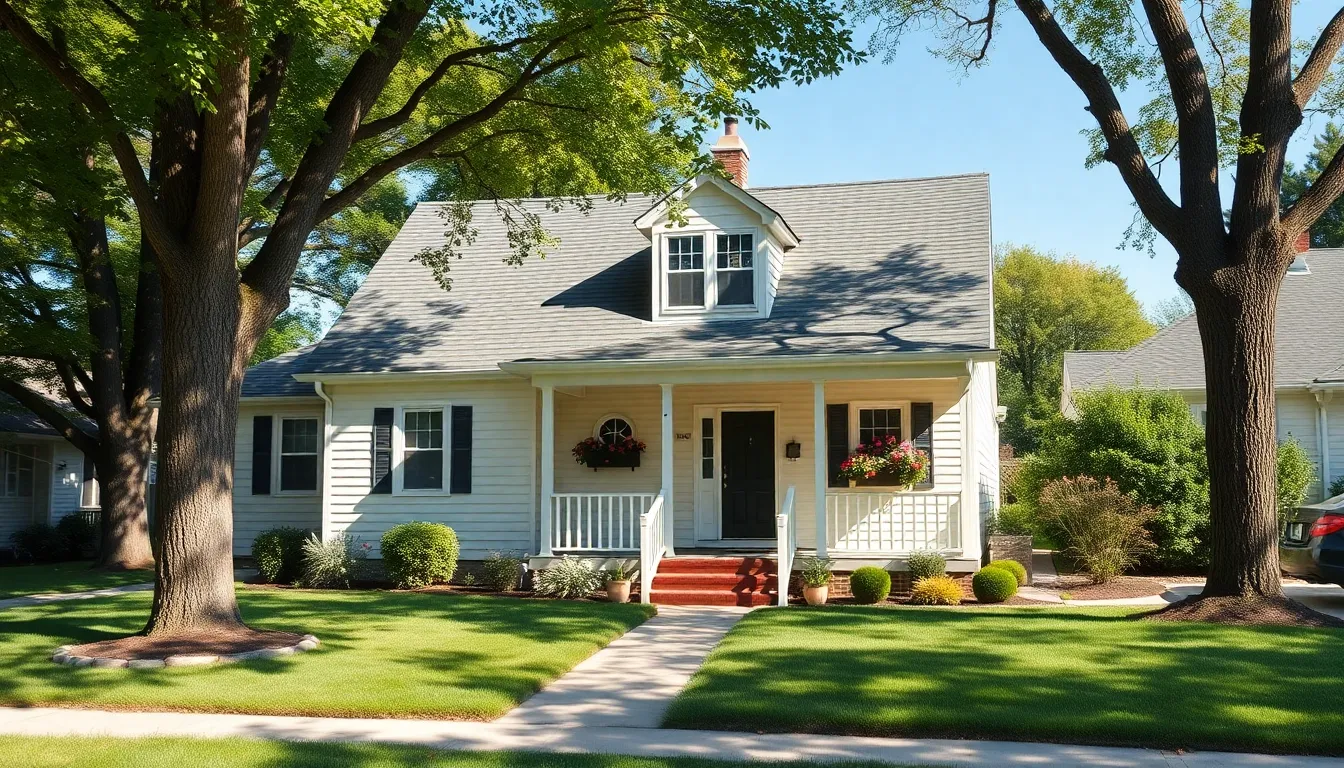Managing a home comes with a range of responsibilities, and one of the most crucial aspects is understanding home operating expenses. These costs go beyond just the mortgage payment, encompassing everything from utilities and maintenance to property taxes and insurance. For homeowners, grasping these expenses is essential for budgeting effectively and ensuring long-term financial stability.
As the housing market evolves, so do the factors affecting home operating expenses. Rising energy costs and unexpected repairs can strain budgets, making it vital for homeowners to stay informed and proactive. By keeping a close eye on these expenses, they can make informed decisions that enhance their home’s value and improve their overall quality of life. Understanding these costs can empower homeowners to navigate their financial landscape with confidence.
Table of Contents
ToggleUnderstanding Home Operating Expenses
Home operating expenses encompass all costs associated with owning and maintaining a home. Grasping these expenses aids homeowners in budgeting effectively and ensuring long-term financial stability.
Definition and Importance
Home operating expenses refer to regular and necessary costs a homeowner encounters throughout the year. Understanding these expenses is vital since they impact overall financial planning. A detailed comprehension enables homeowners to allocate resources wisely, avoid surprises, and maintain their properties effectively. Awareness of these costs can lead to opportunities for savings and improved value retention in property.
Common Categories of Expenses
Home operating expenses typically fall into several key categories:
- Mortgage Payments: Monthly payments toward the principal loan amount and interest charges.
- Property Taxes: Annual taxes levied by local governments based on the property’s assessed value.
- Utilities: Monthly bills for essentials such as electricity, water, gas, and trash collection.
- Maintenance and Repairs: Ongoing costs associated with routine maintenance and unexpected repairs to maintain home condition.
- Insurance: Premiums for homeowners insurance, covering property damage and liability.
- HOA Fees: Monthly or annual fees for homeowners’ associations, if applicable, covering services and amenities.
Each category contributes significantly to a homeowner’s financial obligations, making it crucial to monitor expenses closely for effective budgeting.
Factors Influencing Home Operating Expenses

Several factors contribute to home operating expenses, impacting how much homeowners spend monthly. These elements vary based on individual situations, leading to fluctuations in costs.
Location and Property Type
Location and property type significantly influence home operating expenses. Urban areas often incur higher costs due to increased demand for utilities and services. Properties in regions with strict regulations may face additional expenses related to compliance. Different property types, such as single-family homes, condos, or townhouses, also affect costs. For example, condos may include some utilities in HOA fees, while single-family homes generally involve more independent expenses.
Home Size and Age
Home size and age play crucial roles in determining operating expenses. Larger homes typically incur higher costs for heating, cooling, and maintenance. Older homes may require more frequent repairs, energy-efficient upgrades, or renovations, increasing ongoing expenses. Consequently, homeowners should consider the implications of size and age when budgeting for home operating costs.
Tips for Managing Home Operating Expenses
Managing home operating expenses effectively ensures financial stability and prepares homeowners for unforeseen costs. The following strategies aid in optimizing monthly expenditures.
Budgeting Effectively
Establishing a detailed budget helps track and manage home operating expenses. Categorizing expenses, such as mortgage payments, utilities, and maintenance, clarifies financial commitments. Utilizing tools like spreadsheets or budgeting apps enhances organization. Setting limits for each category prevents overspending and encourages discipline. Regularly reviewing and adjusting the budget accounts for fluctuating costs and income changes. Allocating a portion of monthly income for unexpected expenses strengthens financial resilience.
Reducing Utility Costs
Reducing utility costs requires mindful consumption and strategic adjustments. Installing energy-efficient appliances lowers electricity bills significantly. Implementing smart thermostats optimizes heating and cooling, reducing waste by up to 10%. Regularly inspecting and maintaining HVAC systems ensures they operate efficiently. Using LED bulbs instead of incandescent lights can decrease lighting costs by about 75%. Sealing leaks in windows and doors prevents air loss and cuts heating and cooling costs. Additionally, monitoring water usage through low-flow fixtures impacts overall utility expenses positively.
The Impact of Home Operating Expenses on Homeownership
Home operating expenses directly influence a homeowner’s financial stability and the overall success of homeownership. By understanding these expenses, homeowners can effectively plan budgets and make informed decisions.
Financial Planning for Homeowners
Financial planning is crucial for homeowners as it helps track and manage home operating expenses. Establishing a comprehensive budget allows homeowners to categorize costs clearly. Structuring a budget includes tracking mortgage payments, utilities, maintenance, property taxes, insurance, and HOA fees. Regularly updating the budget accommodates changes in income and expense fluctuations.
Implementing budgeting tools—such as spreadsheets or budgeting apps—enhances organization and monitoring. Setting limits in each category fosters accountability and restraint. Homeowners benefit from regularly reviewing their financial plans to ensure compliance with financial goals and retention of property value.
Long-Term Investment Considerations
Home operating expenses impact long-term investment outcomes. Homeowners must consider ongoing costs, including maintenance and unexpected repairs, which can affect overall property value. Not accounting for these expenses can lead to financial strain or diminish the property’s appeal.
Evaluating the property’s age, location, and type offers insights into future expenses. Newer homes typically require fewer repairs, while older properties may demand more frequent upgrades and maintenance. Homeowners should budget for significant renovations and energy-efficient improvements that can enhance the home’s marketability.
Additionally, understanding local market trends aids in gauging potential appreciation or depreciation of property value. By accounting for home operating expenses, homeowners safeguard their investment and contribute to long-term financial health.
Understanding home operating expenses is vital for every homeowner. By staying informed about these costs and monitoring them regularly, they can make better financial decisions that enhance their property’s value.
Effective budgeting and strategic planning play key roles in managing these expenses. Homeowners who adopt proactive measures can navigate the challenges posed by fluctuating costs and unexpected repairs.
Ultimately, grasping the intricacies of home operating expenses not only fosters financial stability but also ensures a more rewarding homeownership experience. With the right approach, they can safeguard their investments and enjoy the benefits of their homes for years to come.






